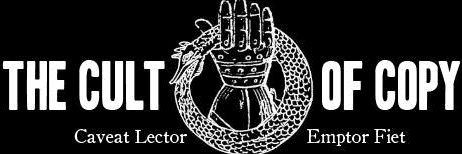“The second principle of magic: things which have once been in contact with each other continue to act on each other at a distance after the physical contact has been severed.” – James G. Frazer, Born Jan. 1, 1854.
It goes this way with the sharing of ideas, too.
Contact with the mental machinery of other people often alters our own internal landscapes.
Often, this happens without us realizing it – and often ends with us incorporating those foreign concepts into our own identities so deeply, that we falsely remember them as having always been there.
There are a variety of ways to make an idea sticky.
This quote itself contains one. Did you catch it?
Another is to create a connection between your new information, and information you know is already in the reader's mind.
The more connections you make, the more embedded it becomes, and feels to your audience like this truth is obvious and has always belonged in their brain.
You are literally grafting it in with physical brain matter that connects individual neurons between each other.
The same muscular “pump” that bodybuilders become addicted to also happens in brain tissue, too – experienced as an “aha” moment. The bodybuilder’s muscles bulge bigger, and your reader's brain literally becomes smarter.
And as you carefully create and assemble these new lattices and scaffolds in your reader's mind over time, what you build is a control panel of sorts.
It can have lots and lots of levers and buttons that you can use to trigger feelings and memories and even complex ideologies – but most importantly is the big, round, red button that triggers what we really want to do all of this for in the first place.
The letters on that big red button read, “OBEY”.


More valuable than a Chest of gold at the bottom of the ocean…Chuuch!
Taking us further down the rabbit hole in 2020. Thanks Colin.
It’s more of a quarry. Thanks!
Love it! I even put the silly example with the spoon in my swipe file. 🙂
Glad to contribute! 🙂
Awesome, Colin! This post was exceptional!
Thanks! I will try to keep it up.
Awesome post! I once read that cliches are a bad thing. Would that be different than an analogy?
To me, a cliche is an analogy or metaphor that got so overused it no longer delivers a meaningful insight. It helps to create fresh analogies, and ideally unique ones no one has seen before. This seems hard, but it can be easier with practice. Just think of weird combos and work on how to connect them. Like, how is business like a tree? How is marketing like losing a football game? How are entrepreneurs like a half-empty glass of beer? Those are just ideas I had while looking around, lol.
The goal would be to take those and try to come up with comparisons and contrasts that your readers will find new understandings in, or at a minimum, reminders of things they’ve forgotten or ignored.
“Your business needs a strong trunk just like a tree has – if the core isn’t solid, none of the branches will be able to stay up.” That kind of thing gets heads nodding, gets faces grinning. Even if it might be a little cliche.
#heavy Happy New Year Colin.
– Ray King